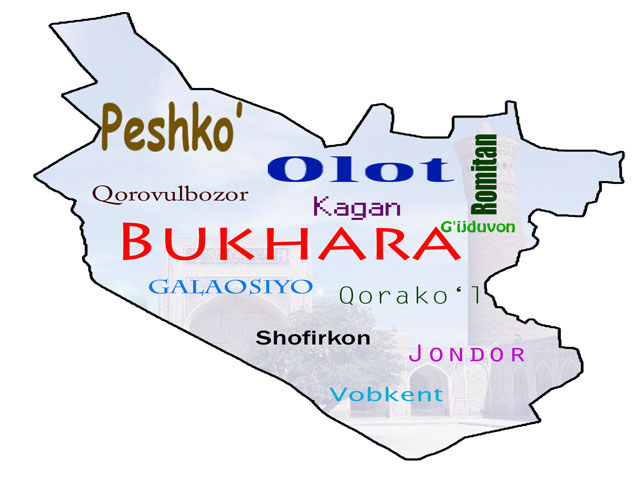Bukhara is one of the few cities in the world which starting from the 5th century AD, has been growing and developing on the same site.
From 2nd century AD up to 3rd century AD, Bukhara was part of Kangju. In the 5th century Bukhara affiliated in the Hephthalite Empire, in the 6th up to the beginning of 7th century, it has been part of Western Turkic Khaganate.
With the assertion of the Arab Caliphate in the 7th century, Islam had spread in Bukhara. In the end of the 9th century Bukhara had turned into one of the major cultural and cultic centers of Muslim world: it was called “the Muslim Dome”, although from the ancient times Bukhara had been the heart of multitude of religions and beliefs. Starting from this period the construction of mosques, minarets, madrasahs and cultic complexes had successfully started. This amazing city had not disrupted the borders of its city pinion wall. This wall was built in 16th century and contained more than 200 madrasahs and plenty of bazaars where almost all types of goods could be found.
The contemporary appearance of the city was gained during the Shaybanids and Ashtarhanids dynasties’ rule in 16th—17th centuries when the majority of its stupendous mosques, madrasahs, caravan-sarais, bathhouses, pinion walls, gates, burial vaults and other huge architectural complexes were constructed. Bukhara is a unique cultural center of the East. It is the land of outstanding scientists, philosophers and poets such as Abu Ali Ibn Sino, Rudaki, Firdousi, Imam Al-Bukhari and others. Preserved heritage of Bukhara represents a rare combination of constructions of different eras that characterize the development of architecture through the past twenty five centuries. Palaces and mosques, mausoleums and minarets of ancient Bukhara are still the objects of admiration of tourists from all over the world who express the desire to feast their eyes upon the imperishable beauty of the antiquity, feel the breath of past, appraise the great craftsmanship of architects and constructors of ages that are blown away by time. In 1991 Bukhara was included in the list of World heritage sites of UNESCO. In 1997 under the supervision of UNESCO the 2500th anniversary of the city had been celebrated internationally.





















